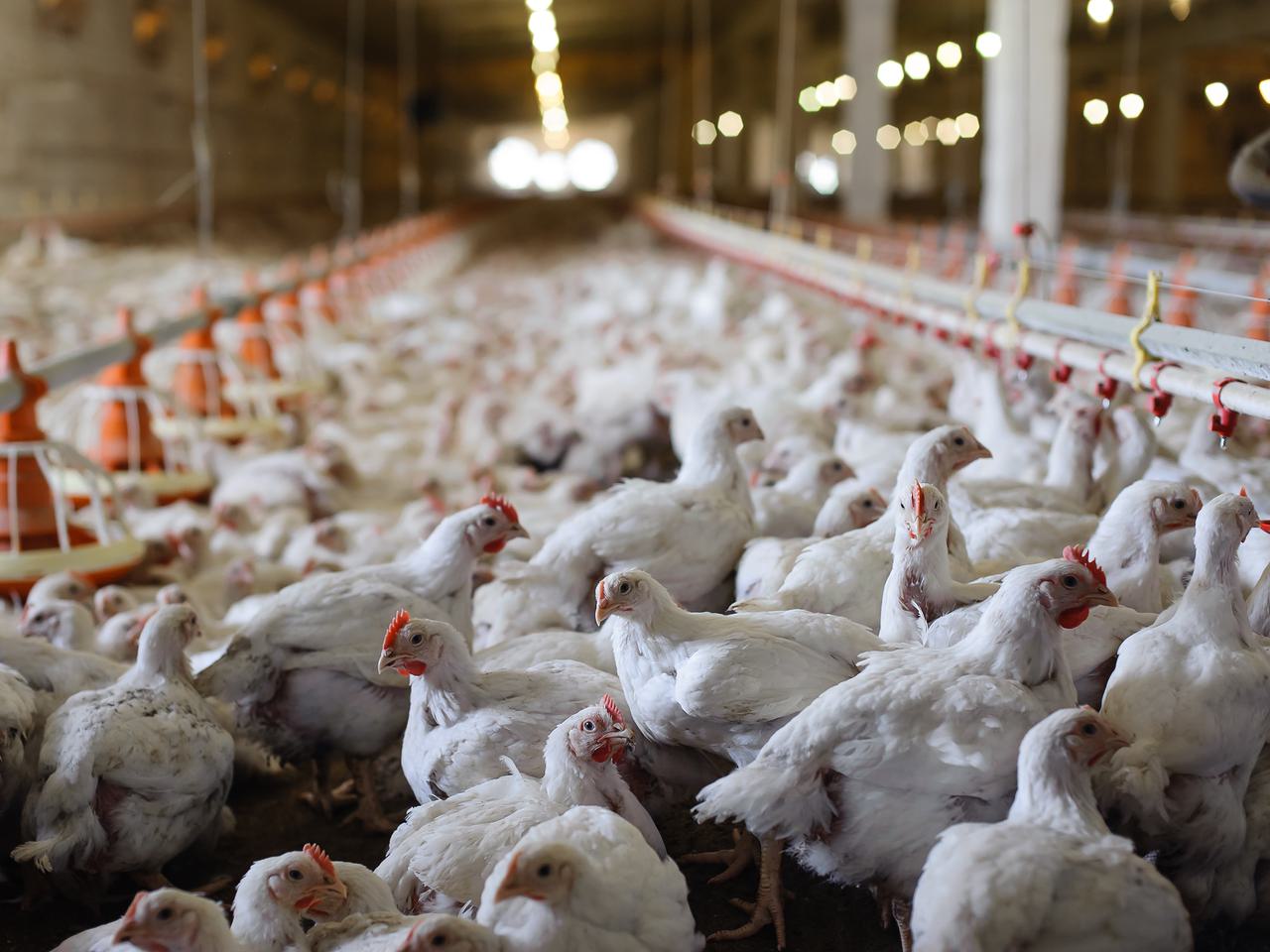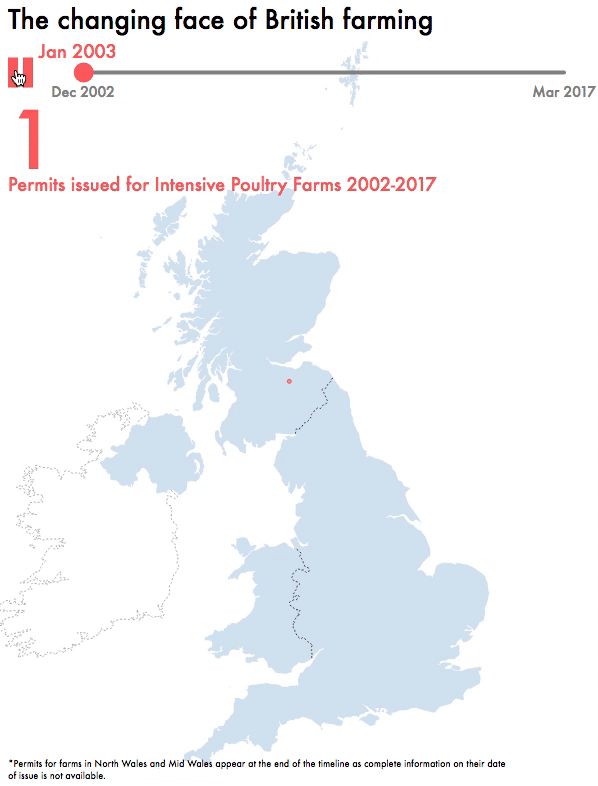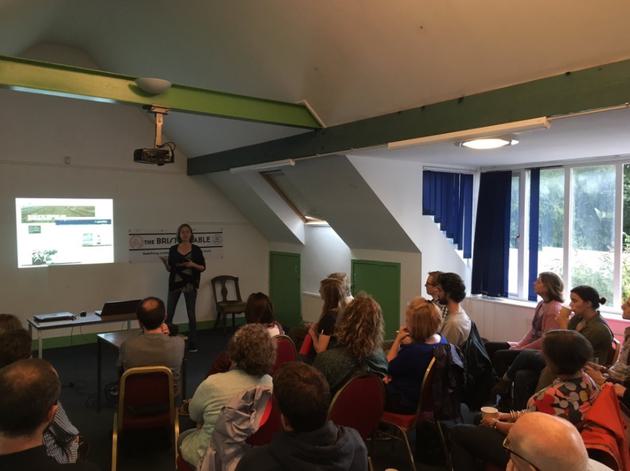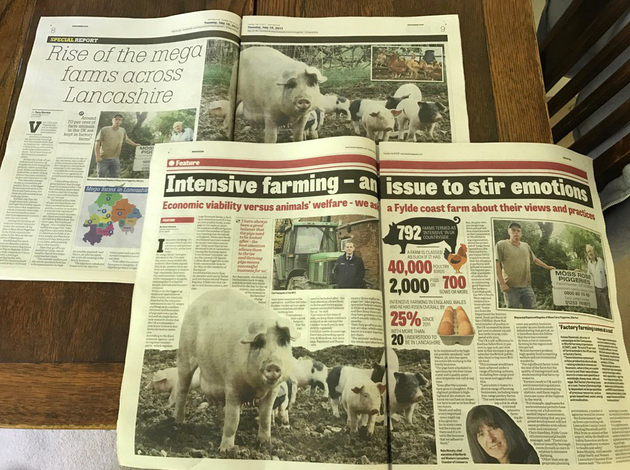
Intensive and polluted farms: an unexpected collaboration
For the past two months, reporters across the country have been working with the Bureau to explore two big issues in UK farming – intensification and pollution - as part of its regional journalism project, Bureau Local.
Since its launch in March, Bureau Local built a network of 350 local reporters, tech experts and others to develop and publish collaborative, data-driven investigative journalism.
The goal was, and is, to produce stories of national significance while working with local media to report how these issues affect their communities.
That is what these two latest investigations did - although in a slightly different way than initially intended.
Our aim has always been to collaborate and investigate issues in partnership with our members. This was reflected in the election work we did in which together we produced 77 local stories across the UK ahead of the 2017 General Election.
Yet our recent work has shown that our community could benefit from, and add to, different kinds of collaboration.
In June, two reporters at the Bureau were working as they always do, to publish important national stories, this time relating to farming.
In realising they had localised data that would benefit and inform local communities, Bureau Local saw an opportunity to share the information and cultivate wider, localised coverage.
So although this work did not originate from the network itself, it was a valuable collaboration that both improved the national stories and allowed for rich new stories in local communities.
 Most permit-holding intensive farms (86%) in the UK are poultry farms
Visualisation produced by Charles Boutaud and Rachel Lavin
Most permit-holding intensive farms (86%) in the UK are poultry farms
Visualisation produced by Charles Boutaud and Rachel Lavin
The first investigation focused on the growth in so called US-style mega farms in the UK.
Data obtained by the Bureau using the Freedom of Information Act, and then analysed by its reporters, showed 800 farms, classed as intensive by the Environment Agency, were large enough to meet the US definition of a mega farm, which are controversial due to concerns over animal welfare, noise and pollution.
Most permit-holding intensive farms (86%) in the UK are poultry farms, as shown by the above graphic.
The second investigation focused on serious pollution incidents connected to farms.
The Bureau identified the counties with the most mega farms or pollution incidents and contacted reporters covering those areas, some of whom were already part of our network, and joined up with them to jointly work in the investigation.
A local hand
Reporters involved in Bureau Local are not handed a press release or skeleton story. Instead they need to use their investigative chops and local expertise to analyse, report and expand upon the data, with the help of a detailed reporting recipe explaining the contextual, legal and ethical considerations.
“The reporting recipes were also really helpful in explaining these complex topics,” said Tom Bristow, investigations editor at Archant.
“It made the whole process of researching, writing and publishing these articles much, much quicker than working alone.”
During the mega farms investigation reporters spotted new, previously unexplored angles, as well as issues with the data which had gone unnoticed by Bureau staff as they focused on the national picture, such as categories used by the Environment Agency which were making analysing the local data problematic.
The team had direct access to those reporters via our community platform and could approach them with questions and ask advice. With everyone collaborating ahead of publication day, both the local and national stories were better for it.
The stories appeared in:
Eastern Daily Press (for both stories), East Anglian Daily Times (for both stories), Times and Star, Bristol Cable, Lancashire Post, The Gazette (Blackpool), Belfast Telegraph, Wiltshire Gazette & Herald, Wiltshire Times and Cumberland News.
The mega farms investigation had impact, with the issue being raised in the House of Commons by two Labour MPs, including Bristol MP Kerry McCarthy, prompting Environment Secretary Michael Gove to state “I do not want to see, and we will not have, US-style farming in this country.
In-depth coverage by the Bristol Cable led to a community meeting during which members of the media co-op suggested a variety of ways the story could be developed, including covering independent producers offering alternatives to intensive farming.
 Reporter Lorna Stephenson talks to Bristol Cable members about the mega farms investigation
via The Bristol Cable
Reporter Lorna Stephenson talks to Bristol Cable members about the mega farms investigation
via The Bristol Cable
Local reporting also included a double page spread in both the Lancashire Post and Blackpool Gazette. Journalist Tony Durkin used the data to identify farms across the region and interviewed farmers, business leaders and union representatives about the pros and cons of intensification.
 Coverage of intensive farming in the Lancashire Post and the Blackpool Gazette
Via Gareth Davies
Coverage of intensive farming in the Lancashire Post and the Blackpool Gazette
Via Gareth Davies
Madlen Davies, one of the Bureau reporters working on the stories, said: “It was great to see local journalists dig into the national data and look for trends in their areas.
“For example, the Eastern Daily Press found Norfolk was the mega farm capital of the UK.
“They also looked at which companies were erecting intensive poultry sheds and were able to show that three poultry companies owned nearly half.
“Without the local reporters, these important angles would not have been teased out of the data.”
What our collaborators have to say
News editor Emma Pearson, who oversaw the stories in the Gazette and Post, said: “The data was an excellent foundation to the story and made the job of writing the features much easier.
"It’s the kind of data journalism we have done in the past but which we are finding more and more difficult to do as staff numbers shrink and workloads increase.
“The stories did well on our websites, generating plenty of hits and some interesting comments.”
Tom Bristow signed up to both investigations, which led to two stories each for the Eastern Daily Press and its sister paper the East Anglian Daily Times.
He said: “I hadn’t written about the topics before and was interested to see what the data could show about farming practices in East Anglia. I wouldn’t have had access to the data without Bureau Local.
“It was interesting to compare the regional data with the national data to see where my region ranked, which would not have been possible without the Bureau’s work.”
The mega farms story made the front page of the Eastern Daily Press and a spread inside. It was well read online and generated comments and letters.
More from the network
Bureau Local will continue to help local journalists access investigations being produced by the Bureau at large but also plans to cultivate the network’s ideas for its own investigations, an opportunity welcomed by reporters like Tom.
He said: “It has been really useful to work with the Bureau on the two farming stories but to make the best use of this great resource there should be more input from the network about what we should pursue next, what investigation would work best for them and their audience and how they could collaborate on it.”
We couldn’t agree more. Join us in shaping our next investigation.
Become part of the Bureau Local network. Investigate issues locally and collaborate with others around the UK to get national reach.
Join hereMain picture by Rob Stothard




